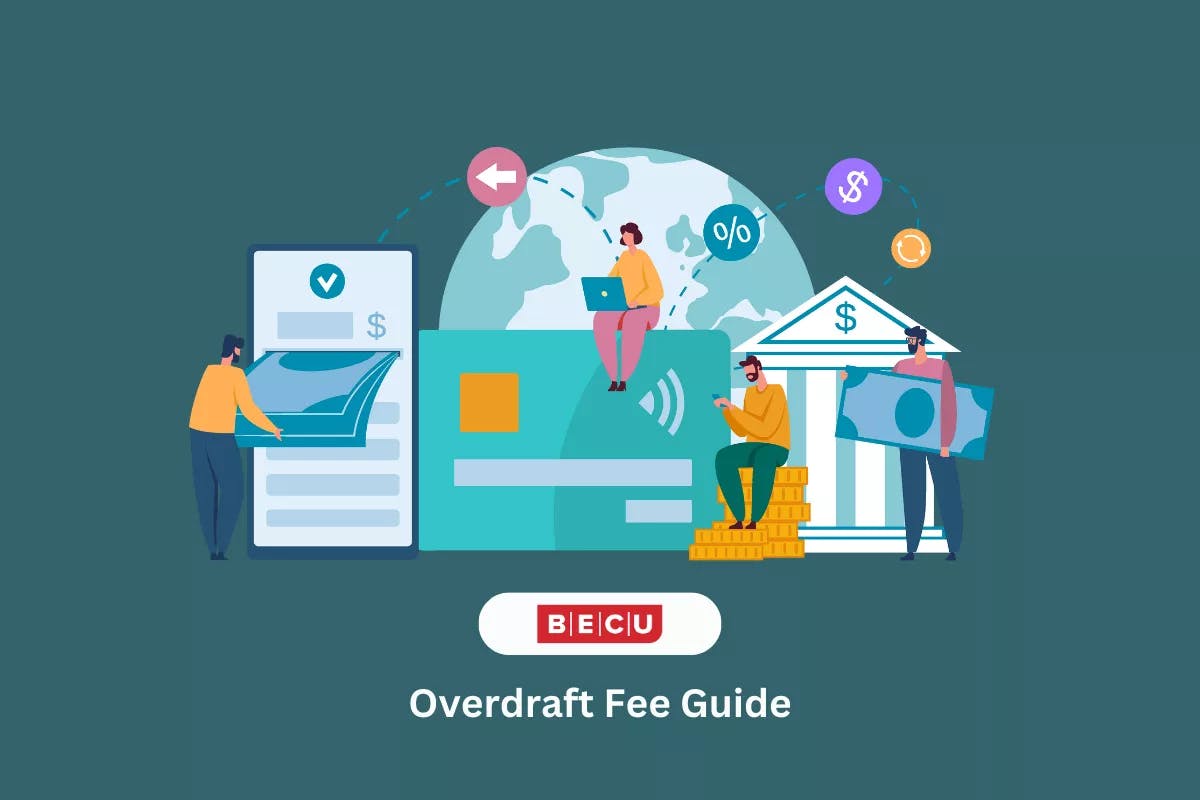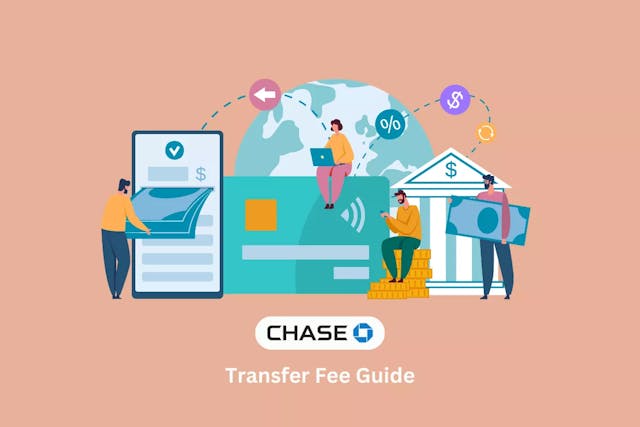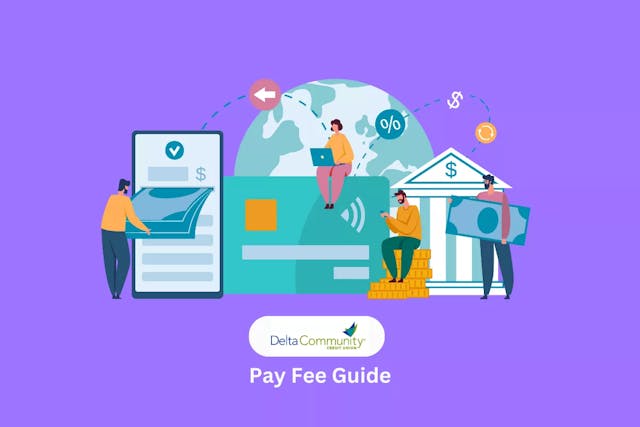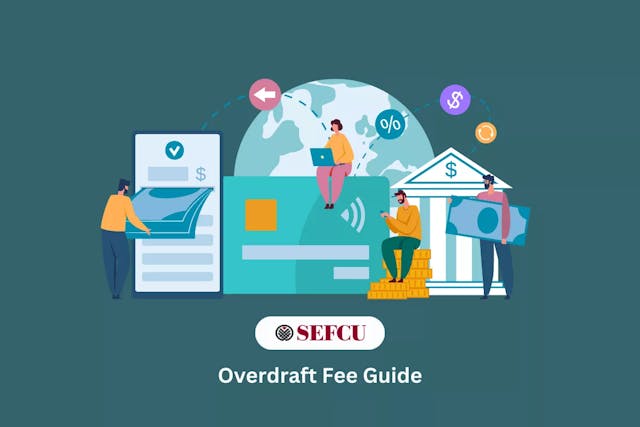What Is an Overdraft Fee?
Boeing Employees Credit Union (BECU) can charge you an overdraft fee when you don’t have enough money in your account to complete a transaction but the credit union pays for the transaction anyway. This will cause your account balance to fall into the negative, and BECU will charge you a fee for covering your transaction.
When you open a consumer account at BECU, you are automatically opted into an overdraft service that enables the credit union to cover certain types of transactions if you don’t have sufficient funds in your account when you try to make a purchase. These types of transactions include:
- Checks
- ACH transactions
- Person-to-person transactions (e.g. Zelle, Venmo)
If you do not wish to have BECU cover these types of transactions, you must opt out of the service.
For other transactions, such as debit card purchases, BECU will only charge you an overdraft fee if you’ve opted into the optional courtesy pay service.
BECU is not obligated to cover any transactions that overdraft your account, regardless of transaction type or overdraft protection status. The decision is ultimately at the credit union’s discretion.
How Much Does an Overdraft Fee Cost at BECU?
BECU charges $25 per item that overdraws your account.
Related Fees
If you overdraft your account, a number of scenarios could occur.
- Overdraft fee
- NSF fee
- Overdraft protection transfer fee
Overdraft fee
Overdraft fees most often occur when you are not opted into overdraft protection and the bank allows you to overdraft your account on checks, ACH transactions, person-to-person transactions, and debit purchases if you’ve opted in.
NSF fee
A non-sufficient funds (NSF) fee — also called a returned item fee — occurs when you make a purchase but there are not enough funds in your account to cover the transaction. Instead of covering for you, the bank will decline the transaction, or return the item unpaid. BECU charges $25 for each item that it returns unpaid.
Overdraft protection transfer fee
Overdraft protection transfer fees most often occur when you are opted into overdraft protection and the bank allows you to overdraw your account by automatically transferring funds from a qualifying linked account. The credit union allows you to link your checking account to any other BECU account to cover transactions that overdraw your account, including but not limited to savings accounts, money market accounts, and lines of credit. You may also receive an overdraft protection fee for these transfers.
Special Considerations
BECU limits the number of overdraft fees — including both overdraft fees and NSF fees — to five on a single day.
Overdraft protection can give you peace of mind if you’d like to know that your purchases can be covered even if you don’t have sufficient funds in your account; however, there are things to consider before opting in.
Overdraft protection and optional overdraft services are not mandatory; your bank is required to ask whether or not you want to opt in. According to a study by the Consumer Financial Protection Bureau, opted-in accounts typically pay more on bank fees than accounts that aren’t opted in. It’s important that you do your research and carefully consider whether it makes sense for your financial situation before you opt in.
Remember: You can opt into or out of overdraft protection at any time.
Learn more about what you should know before opting into overdraft protection.
How to Avoid an Overdraft Fee
Overdraft fees are one of the most common charges detected on Cushion customers’ accounts, but there are small actions that you can take to avoid them:
- Keep an eye on your account balance and charges.
- Sign up for low-balance notifications.
- Carefully consider whether you should opt into overdraft protection.
Learn more about how to avoid an overdraft fee.
How to Get an Overdraft Fee Refund
One overdraft fee can put a real damper on things. However, if those fees start to compound, it’s all too easy to find yourself in a financial bind.
Instead of accepting the penalty, shoot your shot at negotiating them. You might be surprised at just how much money you can put back in your bank account.
Here’s how to prepare for an overdraft fee negotiation.
Prepare your information
Name, address, bank account number, and the fees that you’d like to negotiate.
Introduce yourself
“Hello. My name is , and I recently received an overdraft fee while using my card. I’m contacting you to see if you would be willing to refund this fee.”
Have your points of leverage ready
Have you been financially affected by COVID-19? Do you rarely get overdraft fees? Are you a loyal customer who has banked with BECU for an extended period of time? Do you have multiple accounts with the bank? Do you make regular deposits?
Be patient, persistent, and prepared not to get a refund every time
Kindness and patience are key and can help tremendously in negotiations. Remember that the customer service agent that you are communicating with likely didn’t write the rules on refunds.
If you’re having trouble with one agent, try contacting the credit union at a later date to speak with someone new, or ask to speak with a manager. Don’t hesitate to press the issue if you initially hear “no” — that’s what your points of leverage are for.
Unfortunately, you might lose some negotiations. Try not to get discouraged, but do try to take the necessary steps to avoid an overdraft fee in the future.
Learn more about how to get an overdraft fee refund.



